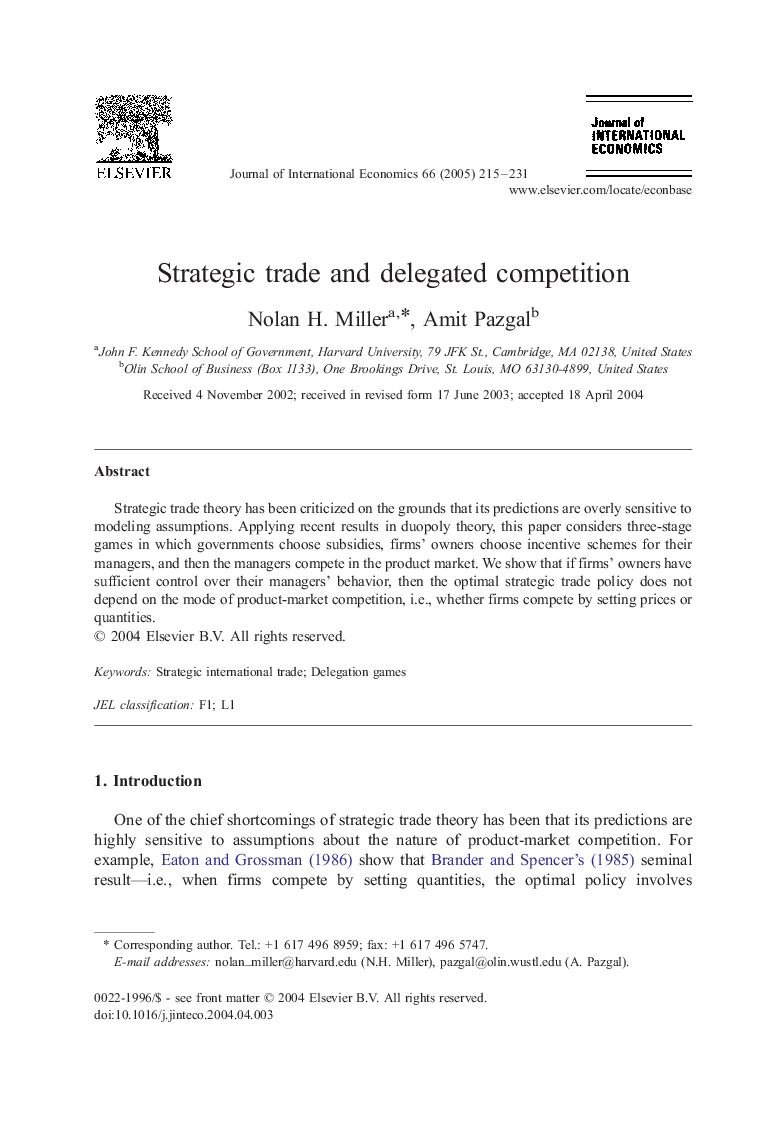| Article ID | Journal | Published Year | Pages | File Type |
|---|---|---|---|---|
| 10477055 | Journal of International Economics | 2005 | 17 Pages |
Abstract
Strategic trade theory has been criticized on the grounds that its predictions are overly sensitive to modeling assumptions. Applying recent results in duopoly theory, this paper considers three-stage games in which governments choose subsidies, firms' owners choose incentive schemes for their managers, and then the managers compete in the product market. We show that if firms' owners have sufficient control over their managers' behavior, then the optimal strategic trade policy does not depend on the mode of product-market competition, i.e., whether firms compete by setting prices or quantities.
Related Topics
Social Sciences and Humanities
Economics, Econometrics and Finance
Economics and Econometrics
Authors
Nolan H. Miller, Amit Pazgal,
